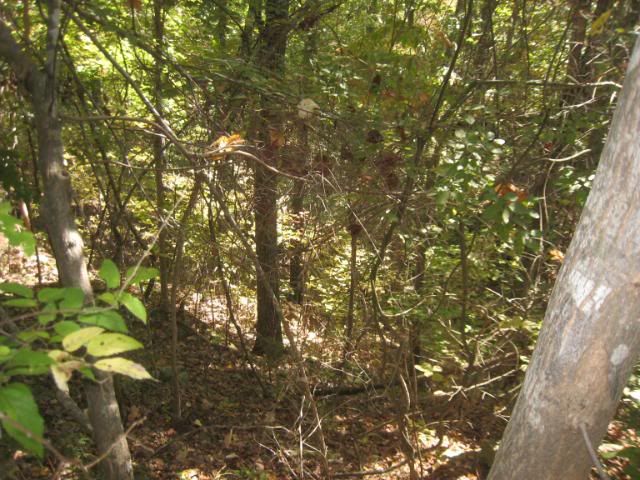This trail was used extensively delivering supplies and mail to Fort Hampton. It was also used by thieves and no-goods that capitalized on the many travelers. Sometimes they would beg and other times they would rob. The latter was attempted on Levi. He was just east of Mooresville trail when from nowhere three crusty, looking fellows came from a heavily wooded area. They surrounded him and his mule. Using sharpened wooden spears, they demanded all of his furs and his ride or they would kill him.
 To even Levi’s surprise, his mule, "Old Bully", flared his nostrils and begin to kick violently at anyone in range. Levi had to use all his strength and might to stay on "Old Bully’s" back. First there was a strong thug as old "Bully" connected with one of the robbers' chest. One down and two to go. The second wasn’t lucky either. He moved in with his wooden pole to gore the mule. Suddenly, old "Bully" caught him in the head with his back hoof; down went number two. The third robber started running as fast as he could to escape, disappearing into the woods not to be seen again.
To even Levi’s surprise, his mule, "Old Bully", flared his nostrils and begin to kick violently at anyone in range. Levi had to use all his strength and might to stay on "Old Bully’s" back. First there was a strong thug as old "Bully" connected with one of the robbers' chest. One down and two to go. The second wasn’t lucky either. He moved in with his wooden pole to gore the mule. Suddenly, old "Bully" caught him in the head with his back hoof; down went number two. The third robber started running as fast as he could to escape, disappearing into the woods not to be seen again.Levi had a mess on his hands as one robber was lying in the trail moaning and the other appeared to be dead. Levi dismounted Old "bully" and examined both of them. The one groaning had some busted ribs and the other was in fact dead. His head was laid open by "Bully's" sharp Hoof. Levi told the one still alive that he would need to take care of his comrade since he had started this mess. "I will be back thru here tomorrow and check on you” and the would be robber seemed to understand so Levi mounted and rode away being shook up by the hole ordeal.
Late that afternoon, it begin to turn cold as he arrived at the trading post. He stated his business to the keeper and requested to finish up the trade so he could head on back to his homestead. As nightfall came so did the cold wind, Levi knew it would be miserable traveling at night but it was more important to get back home with his family than to stay at the trading post overnight.
Along with the 30 lbs. of salt he had traded for, there was one tin of black powder, two pounds of lead, one small sack of taffy, Two clay jugs with tops , three hens and a rooster. Not much for 25 top grade furs but Levi didn’t complain.
On his way back Levi arrived at the place where the robbers were. He could see a small campfire deep in the woods. Quietly he continued on, wondering what might have happened to the three. Why had they become robbers? Why did old "Bully" do what he did? Why didn't they just ask for help? Levi being a sensible man, knew he would never know the answer to these questions. He decided not to stop and check on these thugs as he told them. He felt that getting back to his family was more important.

